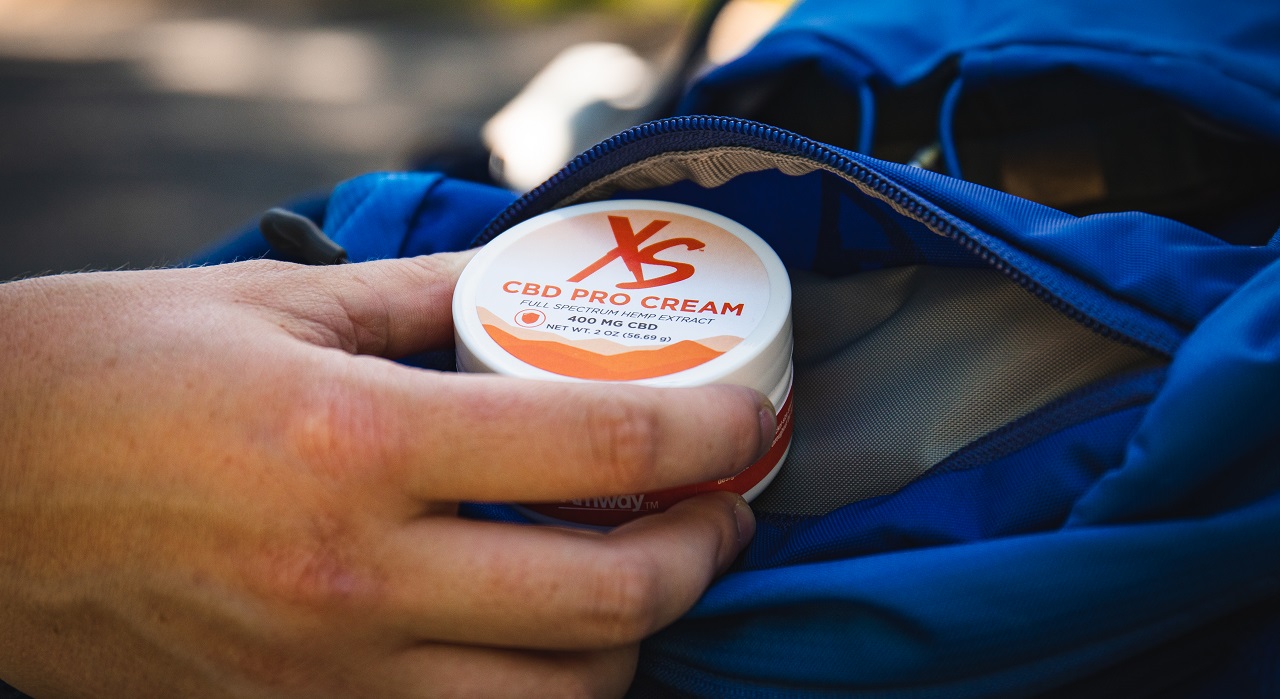Can CBD help with sinus infection? Cannabidiol, or CBD, is a chemical compound found in the cannabis plant. Unlike THC, the psychoactive compound in cannabis, CBD does not produce a high. CBD oil is made by extracting CBD from the cannabis plant and then diluting it with a carrier oil such as coconut oil or hemp oil. While there is no cure for sinus infections, some people believe that using CBD oil may help to relieve their symptoms. Proponents of CBD oil claim that it can help to reduce inflammation, congestion, and pain. However, there is currently no scientific evidence to support these claims. If you are considering using CBD oil for your sinus infection, it is important to speak to your doctor first.
CBD has shown promise in preliminary studies as a treatment for both sinus infections and sinusitis. CBD has antibacterial, anti-inflammatory, and immune-boosting properties, which makes it a potential treatment for sinus infections. However, more research is needed to confirm these potential health benefits.
Can CBD help sinus problems?
At the moment, there is insufficient evidence to say definitively whether CBD can help with nasal polyps. However, some studies suggest that the anti-inflammatory and antimicrobial properties of CBD may be beneficial in the treatment of nasal polyps. It is possible that CBD nasal sprays may help with nasal polyps, but more research is needed to confirm this.
CBD is not a decongestant, but it has anti-inflammatory properties that may help to reduce congestion.
How do I get rid of a sinus infection ASAP
There are a few things you can do to try and speed up the recovery process from a cold or the flu. Drink plenty of water, eat foods with antibacterial properties, add moisture to the air, clear the sinuses with oils, use a neti pot, ease facial pain with warm compresses, and take over the counter medications. If the symptoms are severe, you may need a prescription from your doctor.
Echinacea is an herb that can help your body fight off viruses and bacteria. Professional herbalists will often recommend this herb for natural treatment of sinus infections. Echinacea can be taken in pill form or as a tea. It is important to follow the directions on the package when taking this herb.
What is the best way to get rid of a sinus infection without antibiotics?
There are many other forms of treatments available besides antibiotics. Decongestants can be bought over-the-counter and can help relieve congestion. Over-the-counter pain relievers such as aspirins, acetaminophen or ibuprofen can help relieve temporary pain. Saline nasal spray can also be used to help relieve congestion.
Bromelain is an enzyme derived from pineapples that has been shown to reduce inflammation and swelling. Quercetin is a flavonoid that has been shown to have anti-inflammatory properties. Probiotics are live microorganisms that are thought to have health benefits. N-acetylcysteine is an amino acid that has been shown to have anti-inflammatory properties.
What can make sinusitis worse?
A crooked septum — the wall between the nostrils — may restrict or block sinus passages, making the symptoms of sinusitis worse. Other medical conditions, such as cystic fibrosis, HIV and other immune system-related diseases, can also lead to nasal blockage. Respiratory tract infections are another possible complication.
If your sinus infection lasts for about a week, it is usually due to a virus. Bacterial sinus infections can persist for some time. They usually last for 10 days or longer. While viral infections usually start to get better after a few days, bacterial infections tend to get worse over time. Therefore, if your sinus infection does not improve after a few days, it is important to see a doctor to determine if you have a bacterial infection.
What are the 4 main symptoms of sinusitis
If you are experiencing any of the following symptoms, you may have a sinus infection: thick, yellow or greenish mucus from the nose (runny nose) or down the back of the throat (postnasal drainage); blocked or stuffy nose (congestion) causing difficulty breathing through your nose; pain, tenderness, swelling and pressure around your eyes, cheeks, nose or forehead that worsens when bending over. If you think you may have a sinus infection, see your doctor for a diagnosis and treatment.
If you’re experiencing symptoms of a sinus infection, it’s important to see a doctor to discuss treatment options. Sinus infections can be caused by bacteria, and when symptoms last for seven days or more, it’s likely that you have a bacterial infection. Antibiotics are the most effective treatment for bacterial sinus infections, and most symptoms should go away within two weeks of starting antibiotics. However, if symptoms persist or get worse, it’s important to see a doctor to discuss other treatment options.
Why won’t my sinus infection go away without antibiotics?
If you have a sinus infection that just won’t go away or keeps coming back, it may be time to consult with an ENT specialist. ENT specialists are trained in treating conditions of the ear, nose, throat, head, face, and neck. If you have tried multiple courses of antibiotics without success, it may be time to see an ENT for further evaluation and treatment.
A sinus flush is a simple and effective way to flush out your nasal passages and relieve congestion and irritation caused by a sinus infection, allergies, or a cold. The salt solution helps to break up mucus and loosen congestion, making it easier to breathe. To do a sinus flush, simply mix a teaspoon of salt with eight ounces of water, and use a syringe or squeeze bottle to gently squirt the solution into your nose. Breathe deeply through your mouth and tilt your head back so that the solution can reach the back of your throat. Spit the solution out after a few minutes. Repeat the process as needed.
How do you kick a sinus infection naturally
– Flush your nasal passages with a Neti pot and salt water solution.
– Spray your nose with a hydrating solution.
– Rest as much as possible.
– Apply a warm, wet compress to your face.
– Add humidity to the air around you.
– Take over-the-counter medication as directed.
There are a few things you can do to help ease the symptoms of a sinus infection, but unfortunately there is no cure. Sinus infections typically last for 10-14 days, so it is important to be patient and wait it out. In the meantime, try to drink lots of fluids, get plenty of rest, and use a humidifier to help ease congestion.
What are the stages of sinus infection?
Sinusitis is a condition that refers to the inflammation of the sinuses. It can be caused by a variety of factors, including allergies, infections, and environmental irritants. Sinusitis can be acute (short-term), subacute (moderate), or chronic (long-term). Symptoms of sinusitis can include congestion, runny nose, facial pain, and headache. Treatment depends on the severity of the condition and can include home remedies, over-the-counter medications, and prescription antibiotics.
An allergy test will help to determine which specific allergens are causing reactions in the body. These reactions can then be treated by avoiding or minimising exposure to the allergens. A change in diet can also help to reduce the symptoms of allergies and sinus infections.
How do you beat chronic sinus infections
The most common course of treatment for sinusitis is to take painkillers and use a humidifier or nasal spray. If the sinusitis is caused by a bacterial infection, then antibiotics may be prescribed. It is important to drink plenty of fluids and to try to reduce the inflammation by mediating.
Bathing your nasal passages daily can help to prevent sinus infections. Drink lots of water to stay hydrated and to thin mucus. Inhale steam to loosen mucus. Avoid dry environments by using a humidifier. Sleep with your head elevated to help drainage. Be nice to your nose by blowing it gently. Avoid antihistamines unless prescribed by a doctor. Be careful with decongestants as they can be addictive and can worsen symptoms if not used as directed.
What can I drink for sinus drainage
It’s important to stay hydrated when you have a cold or the flu, as it helps to thin out mucous secretions and promote drainage. Avoid beverages that contain caffeine or alcohol, as they can be dehydrating. Drinking alcohol can also worsen the swelling of the lining of the sinuses and nose.
This is a great way to relieve tension in the face and jaw. By using your fingers to apply pressure in a circular motion, you can help to relax the muscles in these areas. This massage should take 30 seconds to a minute to complete.
How long are you contagious with a sinus infection
If you have a sinus infection that is caused by a virus, you will be contagious with the virus for up to two weeks. If your symptoms last more than 10 days, or if they come and go, you likely have a bacterial sinus infection that cannot be spread.
If you have a sinus infection, it is best to stay home and rest. If your symptoms last longer than one week or if you have severe pain, you should consult your doctor.
Warp Up
There is no definitive answer to this question as everyone responds differently to CBD. Some people report that it helps with their sinus infection while others find no relief. CBD is thought to possess anti-inflammatory and antimicrobial properties which could potentially help to reduce symptoms of a sinus infection, but more research is needed in this area.
Cannabinoids have been shown to be effective in reducing inflammation, which is why CBD may help sinus infections. CBD may also help to reduce the pain and congestion associated with a sinus infection.



